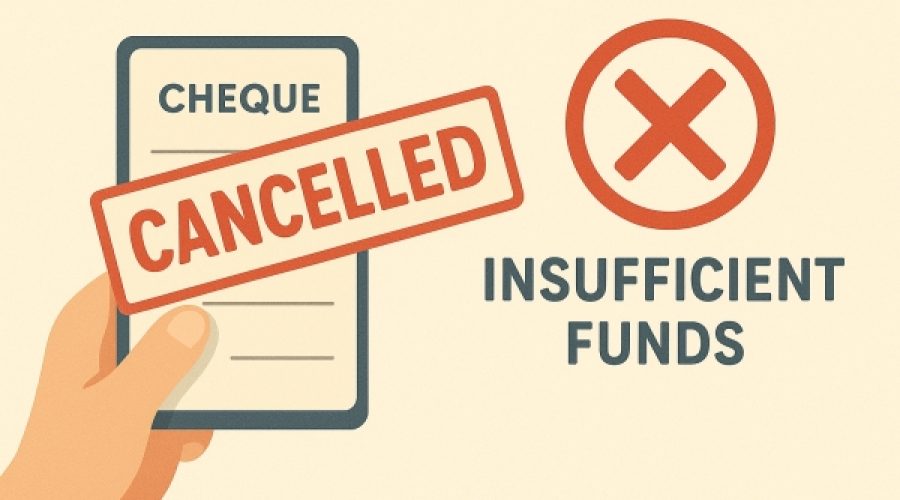کاهش چکهای برگشتی به دلیل کمبود موجودی تا تاریخ 12.2%: این موضوع برای کسبوکارها و سرمایهگذاران در عمان چه معنایی دارد؟
مسقط: بر اساس گزارش ثبات مالی ۲۰۲۵ بانک مرکزی عمان، سلطنت عمان شاهد کاهش موارد چکهای پرداخت نشده و موجودی ناکافی است که نشاندهنده افزایش قابلیت اطمینان پرداخت و بهبود نظم مالی است.
این گزارش کاهش ۶ درصدی در تعداد کل چکهای ارائه شده برای تسویه را نشان میدهد که نشاندهنده تغییر تدریجی به سمت تراکنشهای دیجیتال است. به همین ترتیب، چکهای پرداخت نشده ۱۳.۸۹ درصد کاهش یافته و از ۳۶۲,۰۷۲ در سال ۲۰۲۳ به ۳۱۱,۷۶۴ در سال ۲۰۲۴ رسیده است. نسبت چکهای پرداخت نشده نیز از ۹.۸ درصد در سال ۲۰۲۳ به ۸.۹ درصد در سال ۲۰۲۴ کاهش یافته است که نشاندهنده تقویت کنترلهای مالی و بهبود کلی سلامت مالی است.
در سال ۲۰۲۴، علل اصلی چکهای پرداخت نشده نیز کاهش قابل توجهی را تجربه کردند. چکهای برگشتی به دلیل کمبود موجودی ۱۲.۲ درصد کاهش یافت که نشان دهنده بهبود مدیریت موجودی حساب توسط مشتریان و کاهش اتکا به چک است. قابل توجهترین کاهش در چکهای با علامت «ارجاع به کشو» مشاهده شد که ۴۳.۷ درصد کاهش یافت و چکهای با علامت «پرداخت متوقف شده/پرداخت در انتظار تأیید متوقف شده» که ۴۱.۹ درصد کاهش یافت. موارد مربوط به «بسته شدن/مسدود شدن حساب» ۲۹.۱ درصد کاهش یافت که نشان دهنده افزایش تعامل بانک و مشتری و کاهش حسابهای غیرفعال یا رها شده است.
موسسات مالی همچنان به تقویت سیستمهای تسویه چک خود ادامه میدهند و این امر به کاهش چکهای پرداخت نشده کمک میکند. همزمان، پذیرش گستردهتر پرداختهای دیجیتال و اجرای اقدامات سختگیرانهتر برای انطباق با قوانین، کارایی پرداخت را بیشتر افزایش میدهد. در پایان این گزارش آمده است که با افزایش مسئولیتپذیری مشتریان در مدیریت حسابهایشان، انتظار میرود تعداد چکهای برگشتی به دلیل کمبود موجودی، کاهش بیشتری یابد.
تحلیل ویژه از عمانت | بازار عمان را کشف کنید
کاهش چکهای پرداخت نشده و بهبود قابلیت اطمینان پرداخت، نشاندهندهی ... تقویت انضباط مالی و افزایش بهرهوری بانکی در عمان. برای کسبوکارها، این روند ریسک اعتباری را کاهش داده و پیشبینیپذیری جریان نقدی را بهبود میبخشد، در حالی که تغییر به سمت تراکنشهای دیجیتال، فرصتهای قابل توجهی را برای نوآوری در حوزه فینتک و راهکارهای پرداخت ساده ارائه میدهد.سرمایهگذاران و کارآفرینان هوشمند باید اولویتبندی کنند پلتفرمهای پرداخت دیجیتال و فناوریهای افزایشدهنده انطباق برای بهرهبرداری از این چشمانداز مالی در حال تحول.



